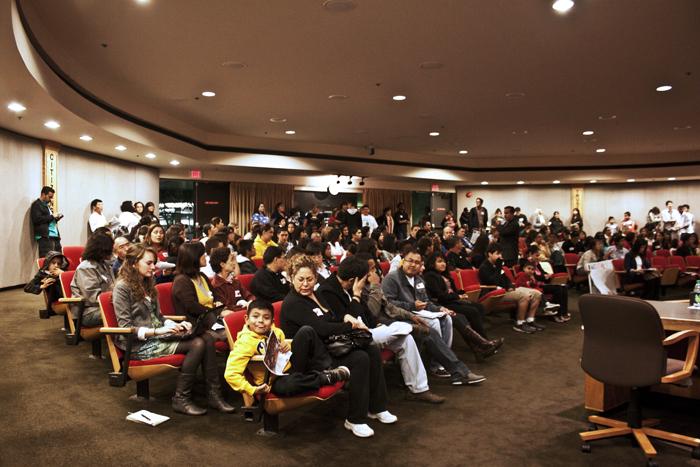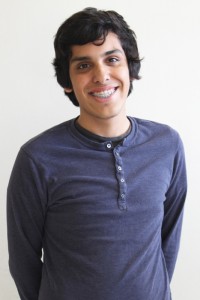The night was tinged with a buzz of excitement as students, parents, and other adults assembled outside of the Downey City Hall on Oct. 25 to show the council members their solidarity for anti-smoking laws.
Riding on their increasing success, the Downey Fresh Air Coalition has been able to get the issue on the agenda after a rigorous year and a half of debating and questioning by the city hall members. Over 170 people gathered to represent their supoort and flood the large city council room.
“Attendance far exceeded expectation. There weren’t even enough seats!” senior Valentina Thompson said. “The amount of people that came is astounding, and it represents our desire to make a change.”
On Tuesday the 25, the city counsel finally brought the issue to call and decided to have the bill be voted on at the next city counsel meeting; however, that was in no way easy to agree upon.
Mario Guerra, councilmember from District 2, vehemently opposed the legislation and insisted that the matter was a non-issue. According to Guerra, the issue is not one that should involve government intervention. Rather, he feels that the people themselves can police the situation—whatever of it exists, of course.
Councilmember Fernando Vazquez, on the other hand, has consistently been in favor of the proposed bill. Fighting for the right of the non-smokers, Vazquez gave equally passionate speeches on the pro side of the agenda.
Education and information was the overarching theme of the night. The LA County Health Department themselves appeared and gave a small lecture on the risks and hazards involved with secondhand smoke. Throughout the presentation, Guerra offered con opinions and halted the presentation; the council member and the LACHD representative then delved into a debate surrounding the legitimacy of the data.
“It was really intense,“ senior Jinan Mannaa said. “Over all, I learned a lot about the dangers of smoking, but Guerra brought up good points.”
Mannaa was not alone in this thought. Many people also agreed that Guerra raised necessary answers, but did so in a manner that was ultimately off-putting. At times, he was asked to keep his interjections at a minimum for it hindered the flow of the meeting.
The night was tense and dispensed a lot of information for a lot of people. The final vote was 3 for and 2 against. The major decision will be finalized two weeks from now.
Not diminished in the slightest, however, the Downey FAC and its members again amassed at the city hall on Oct. 8 to represent their fervent wish to see parks and public events smoke-free.
The supporters were again rallied and encouraged by the words of the KIWIN’S advisor Alexander Gaytan. People moved to the council meeting room and sat, hopeful. Sadly the coalition’s bill would not be voted upon until the end of the meeting. Taking precedence, the recent shooting of Michael Nida.
The determination of the supporters was strong enough to last through most of the meeting, though. After the fact, the council members debated the issue a last time and reviewed the ordinance; Guerra protested the ineffectiveness of the law—in essence, they would pass a “sexy political issue” that would produce no palpable benefits. Guerra adamantly believes that the issue deserves more speculation and laws that respect the smoker as well as the nonsmoker. As he says, he wants a law that is “the most rational.”
In a move that was shocking and totally surprising, councilman Gafin retracted his previous negative vote and switched to a positive.
“I was elected to serve the people; the people obviously want this and therefore I should vote yes on the ordinance—because I serve the people,” Gafin stated.
The Downey FAC constituents were greatly pleased.
When the issue became open to the public, at around ten o’clock, the participants gave their passionate reasons and tried to exhort the remaining council member to vote yes.
In the end, the ordinance passed 4 to 1. The crowd applauded. The night was in no way terse: the meeting lasted until 10:53 pm, but a lot was covered and a lot of information was given to the public, as city hall meetings are designed to do. These meetings have again showed that the political system works, and that grassroots movements can have large implications on a city.




